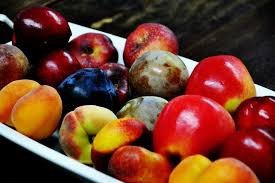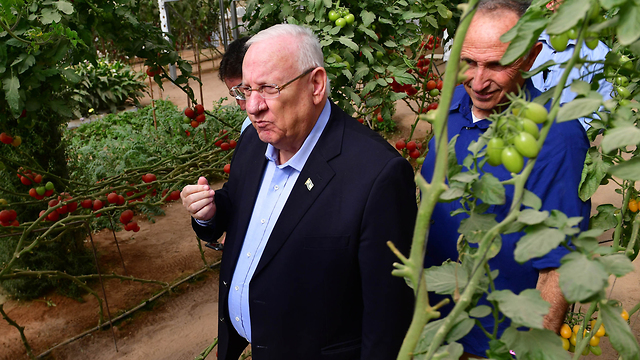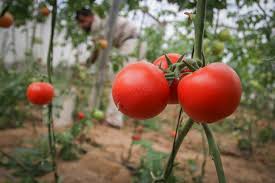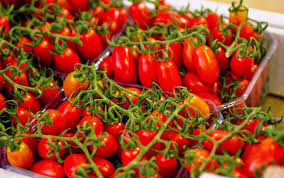
By Itzhak Rabihiya
Experts in both countries are trying to make people more aware of what they eat, where it comes from, and how much of it we throw away; currently Israelis and Americans waste 30-40% of all food, and cutting down on this will also have a positive impact on the environment through reducing greenhouse gases – published by ZAVIT – Science and Environment News Agency and Ynet news.
Education is an essential way to make the general public aware of the food they are eating. School children in Israel are learning healthy, fun eating habits from an early age by growing their own vegetables in newly implemented school gardens and learning healthy recipes from older students that they can make with their parents at home.

Professor Emily Broad-Leib, Director, Harvard Food Law and Policy Clinic at Harvard University was the keynote speaker at a lecture regarding food systems and strategies given at Tel Aviv University in May. “This is the beginning of an opportunity to share ways the U.S. and Israel are similar and different in food strategies,” says Broad-Leib. The various initiatives to grow food in schools shows the “level of thoughtfulness and sophistication in Israel” that could be brought to the U.S., says Broad-Leib. These new programs have a long lasting societal impact on children in a way that shows them the need to make conscientious and healthy food based decisions.

Dr. Efrat Oron, the Director of Research & Outreach of the Manna Center Program for Food Safety and Security at Tel Aviv University, defines the food system as “the entire envelope from designing, producing, storing, packaging, distributing, consuming, and wasting of food.” Maya Oren, Program Director of the Manna Center, adds that “to think of the food system in a circular way is a new concept that is only about 15 years old.”
“From my time here, what I am seeing on food policy and matters, in general, is that there are more similarities than differences,” says Broad-Leib.
Growing environmental and health concerns are forcing us to change how we interact with our food system, but this comes with its own challenges. In the U.S., many government offices have different roles in the food system, but since they are isolated from one another, they lack communication, and their oversight is inconsistent and insufficient.

Israel has similar issues when it comes to communication. Oron explains that ministries should communicate and reach agreements together, however, they are not.
According to Professor Ronit Endevelt, Nutrition Division Manager of the Ministry of Health and lecturer in the School of Public Health at Haifa University, who was also presenting at the lecture, it takes a lot more time and work to pass new laws with today’s government.
Professor Nir Ohad, head of the Manna Center, explains that in Israel, “there are closer connections to agriculture since we evolved as an agricultural country. Agriculture is in the DNA of the society.” He adds that there is a “tight link between what we produce and what we eat.” He notes that Israel’s food system is only independent when it comes to fruits and vegetables.

Israel, like the U.S., is a melting pot. However, according to Broad-Leib, the U.S. does not have a healthy, native cuisine that ties its people together as the Mediterranean diet does for Israelis. Therefore, it is harder to find common ground when explaining what Americans should and should not eat.
The National Nutrition Security Council under the Ministry of Welfare, works with Non-Governmental Organizations (NGOs) to collect food waste from the industry. The name of this council, according to Oren, is misleading. “The scope is extremely limited since they are dealing with poorest people in Israel. Their focus is a very ‘now’ approach, which is not looking to solve food security. This is not a food systems approach,” she says.
There is not much oversight in the foods delivered in food baskets to those in need. While the basket provides overall sufficient dietary quality, Ohad, Oron, and Oren agree that the food baskets may not be the healthiest or culturally appropriate. “This is where the Ministries of Health and Welfare butt heads,” say Oren.

In Israel, Endevelt attributes these health risks to the fact that families are not cooking. She also says that since the cost of fruits and vegetables has increased by 45% while ultra-processed foods are cheap, these unhealthy foods are the main nutritional problem in Israel. Environmental impacts are also prevalent. Broad-Leib mentions that the agricultural industry uses 70-80% of the water in the U.S., while 20% of this water goes to watering crops that will eventually be thrown away.
In 2020, the Ministry of Health will put red stickers to all products in Israel that have a high amount of sugar, sodium, and/or saturated fats, and green stickers to healthier food options. Endevelt hopes that consumers will choose healthier products, and companies will change their recipes if their product has been given a red sticker.




